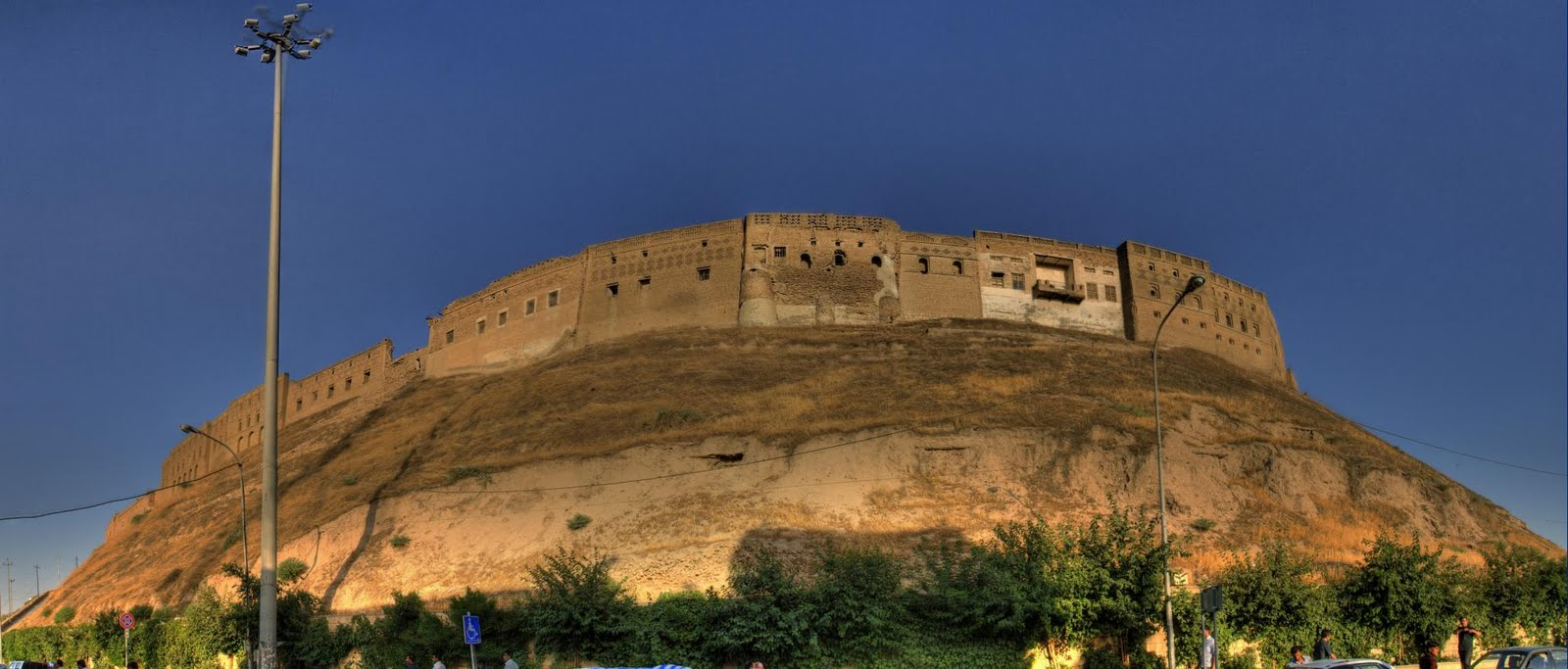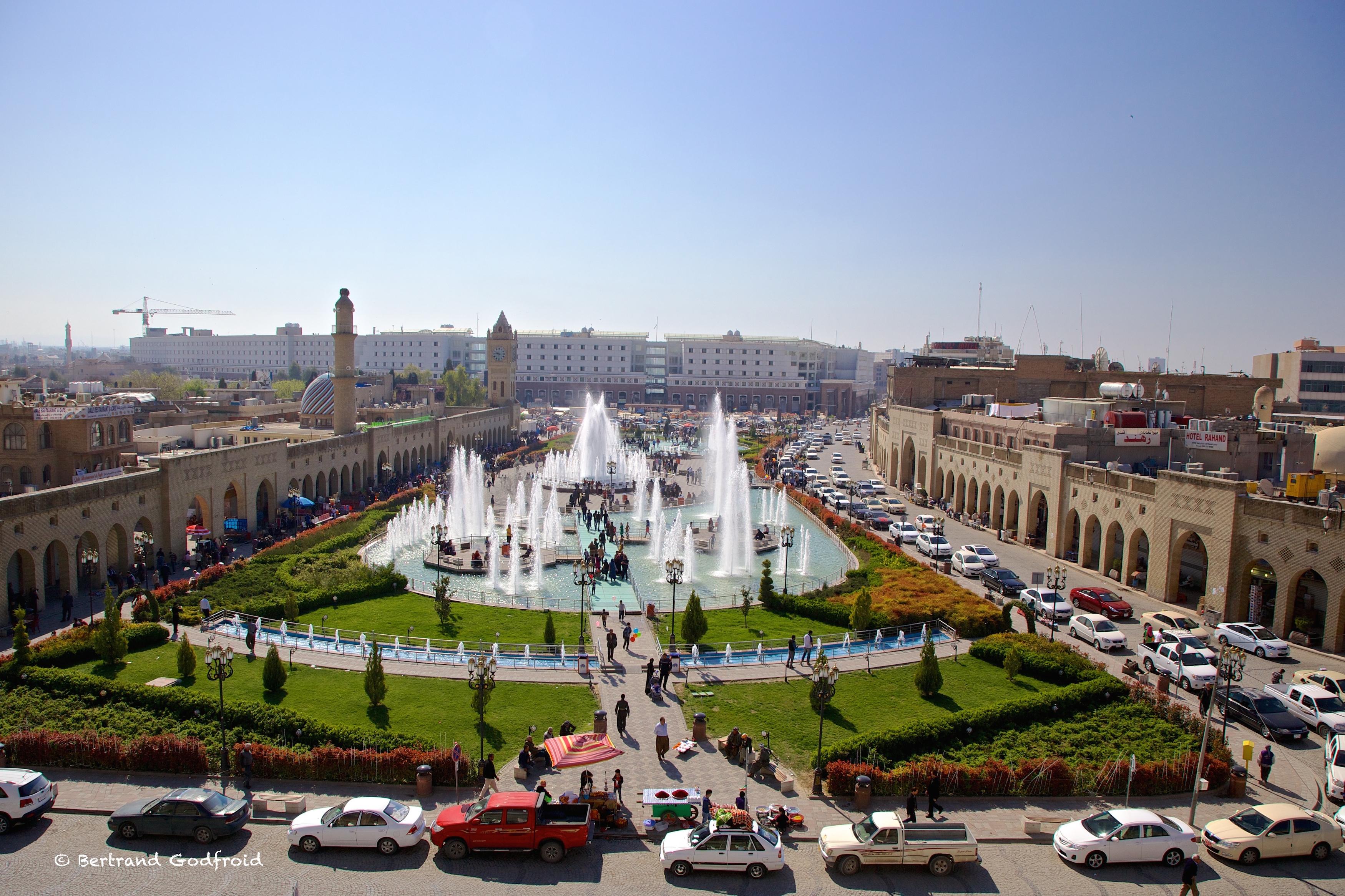

Hawler
Erbil, also known as Hewler (Kurdish: Hewlęr?,
Central Kurdish: ???????; Arabic: ??E??? Arb?l),is the capital of Iraqi Kurdistan.
It is located approximately 350 kilometres (220 miles) north of Baghdad, and its governorate has
a permanent population of approximately 1.61 million as of 2011.
Human settlement at Erbil can be dated back to possibly 5000 BC, and it is one of the oldest
continuously inhabited areas in the world.[2] At the heart of the city is the ancient Citadel
of Arbil. The earliest historical reference to the region dates to the Ur III dynasty of Sumer,
when king Shulgi mentioned the city of Urbilum – the ancient Sumerian name of modern-day Arbil.
Erbil remained a part of the Geo-Political province of several regional powers in turn, including the Mitanni, Assyria, Median Empire,
the Achaemenid Empire (Achaemenid Assyria), Macedonian Empire, Seleucid Empire,
Parthian Empire, Roman Empire and Sassanid Empire. During the Parthian era to early Sassanid era (C.150 BC - C.250 AD) Erbil became the capital
of the Neo-Assyrian state of Adiabene. Following the Arab Muslim conquest of Persia, the Arabs dissolved Assyria (then known as Assuristan/Athura) as a
geo-political entity in the mid-7th century AD, and during medieval times the city came to be ruled by the Seljuk and Ottoman Turks.
Erbil's archaeological museum houses a large collection of pre-Islamic artifacts, and is a center for archaeological projects in the area.[6]
The city was designated as Arab Tourism Capital 2014 by the Arab Council of Tourism. In July 2014, Erbil Citadel was inscribed as a World Heritage Site by UNESCO.

